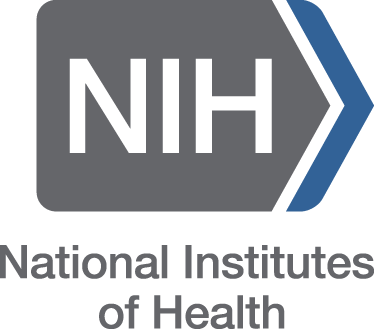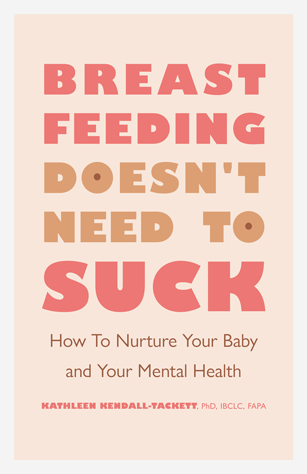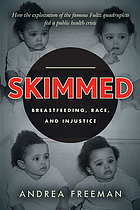Infant Feeding
Breadcrumb
Discover Infant Feeding

All babies need to eat to survive. Breastfeeding (or chest-feeding), also called nursing, is the process of feeding a mother's breast milk to her infant, either directly from the breast or by expressing (pumping out) the milk from the breast and bottle-feeding it to the infant.
Discover an NNLM Reading Club book now and get the conversation started.
 Discover MedlinePlus
Discover MedlinePlus
MedlinePlus is a service of the National Library of Medicine, the largest biomedical library in the world. Use Medlineplus.gov anywhere, anytime, on any device - for free - to discover high-quality health and wellness information that is reliable, easy to understand, and free of advertising, in both English and Spanish.
Discover information on:
Also discover MyHeathfinder.gov to learn how to Breastfeed Your Baby.
Discover NIH
 The National Institutes of Health (NIH), a part of the U.S. Department of Health and Human Services, is the nation’s medical research agency — making important discoveries that improve health and save lives. NIH is made up of 27 Institutes and Centers, each with a specific research agenda, often focusing on particular diseases or body systems.
The National Institutes of Health (NIH), a part of the U.S. Department of Health and Human Services, is the nation’s medical research agency — making important discoveries that improve health and save lives. NIH is made up of 27 Institutes and Centers, each with a specific research agenda, often focusing on particular diseases or body systems.
Agencies that study infant feeding include:
Eunice Kennedy Shriver National Institute of Child Health and Human Development (NICHD) conducts and supports research on Breastfeeding and Breast Milk
Discover More
Links to websites of groups that study or provide information about breastfeeding and breast milk include:
- American Academy of Pediatrics (AAP) The AAP is an organization of pediatricians committed to the health and well-being of infants, children, adolescents, and young adults. Visit the breastfeeding initiatives website information for families
- Centers for Disease Control and Prevention (CDC): Breastfeeding The CDC's site provides information and links to resources on breastfeeding, including the CDC Breastfeeding Report Card.
- Food and Drug Administration (FDA) Read more about medication safety during pregnancy at the FDA Medicine and Pregnancy page. You can also sign up to take part in one of the FDA's Pregnancy Registries to help scientists and health care providers learn more about medication safety during pregnancy.
- Nutrition During Lactation The U.S. Department of Agriculture provides links to resources on breastfeeding and the nutritional requirements of infants.
- Office on Women's Health (OWH) OWH sponsors the National Breastfeeding Helpline. Call 800-994-9662 to speak with trained breastfeeding peer counselors who can help answer common breastfeeding questions in English or Spanish. In addition, OWH offers the following resources on breastfeeding:
- A–Z Health Topics: Breastfeeding
- Finding Breastfeeding Support and Information
- Your Guide to Breastfeeding (PDF 2.2 MB) (available in English, Spanish, and Chinese; editions for African American women and for American Indian and Alaska Native women also available)
- It's Only Natural provides information for African American women and their families on the benefits of breastfeeding
- Lactation Options and Strategies for LGBTQ Persons
Breast Milk or Formula
Health experts agree that breast milk is considered best for the baby because it has all the necessary vitamins and minerals that the infant needs. It is recommend that babies feed only on breast milk for the first 6 months, and then continue to have breast milk as a main part of their diet until they are at least 1 to 2 years old. However, for a parent not able to breastfeed or who decides not to, or for parents of an infant with special medical needs, infant formula may be a healthy alternative. The decision about how to feed your baby is a personal one. Consult with your health provider to decide what is best for you and your family.
What obstacles do mothers encounter when they attempt to breastfeed?
Although most infants born in 2017 started breastfeeding (84.1%), only 58.3% of infants were breastfeeding at 6 months. The percentage of breastfed infants supplemented with infant formula before 2 days of age was 19.2% among infants born in 2017, an increase from 16.9% among infants born in 2016. Source: Breastfeeding Report Card United States, 2020
- Lack of experience or understanding among family members of how best to support mothers and babies.
- Not enough opportunities to communicate with other breastfeeding mothers.
- Lack of up-to-date instruction and information from health care professionals.
- Hospital practices that make it hard to get started with successful breastfeeding.
- Lack of accommodation to breastfeed or express milk at the workplace.
Source: Breastfeeding: Surgeon General’s Call to Action Fact Sheet
Source: U.S. Department of Agriculture (USDA): WIC Breastfeeding Support
Featured Books



Terms of use: Network of the National Library of Medicine (NNLM) staff offer these health discussion resources for educational use. The materials included do not necessarily reflect the views or opinions of the author, publisher, or the sponsoring agencies of the National Library of Medicine (NLM) and the National Institutes of Health (NIH).

